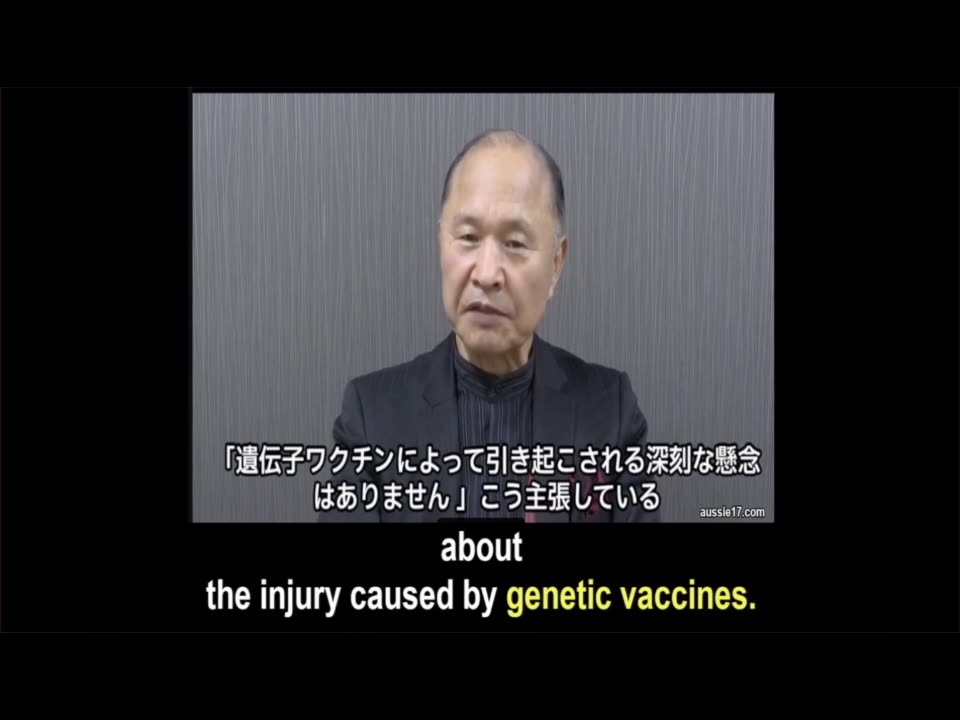Think about the last time you visited a medical office. The nurse ushers you into the examination room. He or she then proceeds to ask you questions from a checklist on a laptop while simultaneously typing in your responses. The nurse barely makes eye contact with you. After the checklist is completed, an algorithm in the computer generates a “to do” list based on your responses.
The physician enters the room, diagnoses your symptoms based on the computer algorithm, perhaps puts in a request for laboratory testing, writes a drug prescription for you and sends you on your way, all in a span of 10-15 minutes. This process is known as “cookbook medicine”—a set of generalized clinical guidelines dictating how physicians should approach patient care.1
“Cookbook Medicine”: The Standardization of Medical Practice
Historically, physicians enjoyed professional autonomy in practicing medicine.2 They had the freedom to make informed decisions based on their own knowledge, expertise and judgment on what the best course of treatment was for each individual patient. This personalized treatment used to be the norm in the practice of medicine and, as a result, the practice patterns of physicians varied from one another.2
In recent years, medical practice has undergone a metamorphosis. In response to the variation of medical practice, the medical and health insurance industries have developed protocols and specific procedures to establish a “standard of care” that physicians are required to adhere to for all patients.3 There are several reasons for the streamlining of medical practice. In a report published in the Archives of Internal Medicine, the author Marshall B. Kapp, JD, MPH writes…
This push for formal explicit clinical standards emanates from a variety of sources for many purposes. Third parties, both public and private, that pay for health care want to assure that the care they purchase on behalf of their beneficiaries is appropriate and efficacious. Physicians, institutional administrators and other health care providers have a professional and ethical stake in assuring the quality of care. Clinical standards may be used for such quality assurance purposes as licensure, privileging and other credentials review. Additionally, the setting, dissemination and enforcement of clinical standards may be relevant for legal purposes, especially as evidence of fault or lack of fault in medical malpractice cases; this naturally attracts the interest of potential malpractice defendants and their insurers.”2
The standardization of medical practice forces physicians to follow a script to achieve cost effectiveness and efficiency, but at what price to the patient?
The Pitfalls of Streamlining Medical Practice
Focusing on efficiency may very well prove beneficial from a business perspective; however, there is a major problematic assumption underlying the standardization of medical practice. The “cookbook medicine” approach operates on the false assumption that patients are not different from one another but simply belong to a homogeneous group and can all be viewed and treated the same way. This “one-size-fits-all” approach results in missed symptoms and misdiagnosis, as well as unnecessary testing.4
It is estimated that “cookbook medicine” unnecessary testing contributes to $210 billion in additional health care costs.4 Hemal Kanzaria, MD, lead author of a study published in Academic Emergency Medicine states:
So many physicians acknowledged that they ordered tests for no medical reason, which makes it clear that physicians feel enormous pressure to behave in a way they may not want to.4
In an opinion piece published on the National College of Physicians website, one physician expresses his frustration with the standardization of medical care…
I wouldn’t do it again, and it has nothing to do with the money. I get too little respect from patients, physician colleagues, and administrators, despite good clinical judgment, hard work, and compassion for my patients. Working up patients in the ER these days involves shotgunning multiple unnecessary tests (everybody gets a CT!) despite the fact that we know they don’t need them, and being aware of the wastefulness of it all really sucks the love out of what you do. I feel like a pawn in a moneymaking game for hospital administrators. There are so many other ways I could have made my living and been more fulfilled. The sad part is we chose medicine because we thought it was worthwhile and noble, but from what I have seen in my short career, it is a charade.”5
Moreover, physicians are bound by contracts that are based on pay for performance, which usually means they must adhere to strict metrics, testing and treatment standards.6 According to an article in The New York Times authored by two physicians, Pamela Hartzband, MD and Jerome Groopman, MD:
For example, doctors are rewarded for keeping their patients’ cholesterol and blood pressure below certain target levels. For some patients, this is good medicine, but for others the benefits may not outweigh the risks. Treatment with drugs such as statins can cause significant side effects, including muscle pain and increased risk of diabetes. Blood-pressure therapy to meet an imposed target may lead to increased falls and fractures in older patients.7
They further add that, “These measures are clearly designed to coerce physicians to comply with the metrics. Thus doctors may feel pressured to withhold treatment that they feel is required or feel forced to recommend treatment whose risks may outweigh benefits.”7
Mandatory Vaccination Policies Mimic “Cookbook Medicine”
The principles of “cookbook medicine” are very evident in mandatory vaccination policies enforced in the United States and in other countries. The U.S. Centers for Disease Control and Prevention’s (CDC) current vaccine schedules for children and adults take a “one-size fits all” approach and do not acknowledge an individual’s current state of health, personal or family health history, nutritional status and genetic predispositions prior to receiving vaccines. Mandatory vaccination policies assume all human beings are part of a homogeneous group and do not have individual genetic, biological or environmental differences.
Arguments have been made that decisions regarding an individual’s vaccinations are not one-size fits all since exceptions to the schedule are sometimes made by doctors who have concluded there is a reason to delay or omit a vaccine to protect the person from being harmed by vaccination. However, the truth is that the CDC and American Academy of Pediatrics (AAP) consider very few medical conditions as a reason to delay or omit a vaccination and 99.99 percent of children do not qualify for a medical vaccine exemption under narrow federal vaccine contraindication guidelines.8 9
The federally recommended and state mandated vaccine schedules do not factor in an individual’s susceptibility to vaccine adverse reactions, which the Institute of Medicine has pointed out cannot be predicted ahead of time by doctors, in part, due to gaps in vaccine safety.10
While “cookbook medicine” may serve a specific purpose for corporations and insurance companies operating health care systems, as well as for government health officials implementing “no exceptions” mandatory vaccination policies, this standard of care approach often fails to lead to better health outcomes for individuals.
References:
2 Marshall B. “Cookbook” Medicine: A Legal Perspective. Archives of Internal Medicine 1990; 150(3): 496-500.
3 Rastegar D. Health Care Becomes An Industry. The Annals of Family Medicine 2004; 2(1): 79-83.
4 Park A. Your Doctor Likely Orders More Tests Than You Actually Need. TIME Mar. 24, 2015.
5 Jauhar S. Is Physician Autonomy Dead? National College of Physicians July 1, 2016.
6 Goodman J. Are You Ready for Cookbook Medicine? Forbes Jan. 12, 2015.
7 Hartzband, P, Groopman J. How Medical Care is Being Corrupted. The New York Times Nov. 18, 2014.
8 U.S. Centers for Disease Control and Prevention. Conditions Commonly Misperceived as Contraindications to Vaccination: Recommendations and Guidelines. CDC.gov October 2013.
9 Fisher BL. Blackmail and the Medical Vaccine Exemption. NVIC Newsletter May 18, 2015.
10 Institute of Medicine Committee to Review Adverse Effects of Vaccines. Adverse Effects of Vaccines: Evidence and Causality: Evaluating Biological Mechanisms of Adverse Events: Increased Susceptibility. Washington, DC: The National Academies Press 2012.














8 Responses
Try visiting a homeopath. You may not fully understand all the seemingly unrelated questions you may be asked, but rest assured, it is all a part of individualization for your case. Your homeopath will likely make eye contact, too! There’s a concept. And even those of us who take notes on a computer care and are truly THINKING about your whole body of answers, and the whole body of your care. Cookbook medicine doesn’t exist for the homeopath. Because we still know how to think. Individualized medicine still works. Non-toxic medicine remains the best option. Homeopathy has both firmly available.
I am from Europe and am appalled by the medical practices in America. Indeed they are business and not health care. Doctors do not know the patient, they do not know the circumstances in which they live, do not do home visits, and only see the patient a few minutes, if at all ! In Europe the doctor opens the door, keeps the records, makes home visits, and knows you personally. The one I knew becomes friends with your family. How different from the mentality here… and yes, they also know about herbs and homeopathic medicine…
One of the great failings of allopathic medicine is that it is based on the belief that the successful treatment of the sick can only be done through impersonal “scientific” methods. This boils down to seeing people as identical widgets on the assembly line of health care delivery. The reason many of us go to the “alternative” is because natural healing arts professionals recognize that we are unique spiritual beings and need to be treated as individuals. This spiritual (energetic) essence in all of us is called the Vital Force (homeopathy), Universal Intelligence (chiropractic) and Qi (Chinese medicine).
Cambridge University biologist, Rupert Sheldrake, has challenged the scientific catechism of modern allopathic medicine in a book called Science Set Free. In it he says modern allopathic doctors have never examined the basic scientific beliefs they consider sacrosanct. In short, these basic material science rules are obsolete and Sheldrake has written extensively about quantum physics as well the spiritual aspects of human health. He is far from alone in this discussion but he is one of the leading writers on the subject. https://www.sheldrake.org/
In the end, vaccines have never been scientifically sound. Since the days of Louis Pasteur and Robert Koch, who both lied in their research to please political urgencies, we’ve been inundated with faulty scientific claims to sell the allopathic profession and our public servants on helping the chemical/pharmaceutical industry become the behemoth it is.
In 1913 Rockefeller and Carnegie created western based profit patented medicine.They opened Sloan Kettering in NYC and hired a doctor from North Carolina who was injuring patients with radiation,to run the show.With their extreme wealth they bribed all medical schools to stop teaching homeopathy and plant based medical care,and only teach profit care.Wonder what it would be like today if Rockefeller and Carnegia were born in a different universe! And sanity began to fester on the Earth plane without them.
“Cookbook Medicine” is definitely not medicine.
Americans need to realize one very critical truth.
The notion of medicine is obsolete, because nobody’s healing. It’s been replaced by the for-profit pharmaceuticals monopoly. It’s a drug cartel. No healing, no natural immunity, no natural medicine, no prevention, no wellness allowed.
The profit’s in the drugs, and the jacked up and dependent customers.
Time for everyone to step away from that grid, and learn to heal, and maintain good health. Healers do exist, and though mostly out of pocket, the knowledge and the healing empowers you to not be enslaved.
Every provider I attend hawks the hardly-tested vaccines, as surely as if they were hitman professional liar Anthony Fauci. They’re brainwashed, and heavily encouraged to sell the bad drugs.
Italian scientists (Drs. Antonietta Gatti and Stefano Montanari) proved far more unregulated chemicals are in the vaccines, than anyone realized or can admit. SO ‘our’ Gov combined with theirs and some to crush the scientists and seize their results. (See Sayer Ji’s newsletter for all the details.)
THE WHOLE BASIS OF MEDICARE Parts A&B was hospitals and doctors paid to write the law, for Medicare to pay THEM. That’s why there’s no drug coverage, no vision, no dental, no acupuncture, and so on. The other fields didn’t come up with the bribes to have any say in the laws.
BUT, they KNEW THEY HAD TO SELL DRUGS, so they brought Part C&D, etc. WE ARE NO LONGER “REPRESENTED” BY “OUR” ELECTED SHITHOLES: CONgress is available to only the highest bidders; they are traitors; they enable the corporations & gov “Agencies” with non-general welfares.
Look on the database to see how much side money they have to admit—e.g., compare the Senator Cuban Twins, from FL & TX (then go look up “yours”): FL [http://maplight.org/data/passthrough/#legacyurl=http://classic.maplight.org/us-congress/contributions?s=1&politician=1496&office_party=Senate%2CHouse%2CDemocrat%2CRepublican%2CIndependent&election=2002%2C2004%2C2006%2C2008%2C2010%2C2012%2C2014%2C2016&business_sector=any&business_industry=any&source=All]
This is the difference between a good chiropractor and the MD community. A good chiropractor will look at your body as a whole and customize and individualize your treatment plan to you and your needs.
Like Dr. Robert Mendelsohn said, doctors should be trusted as much as used car salesmen.